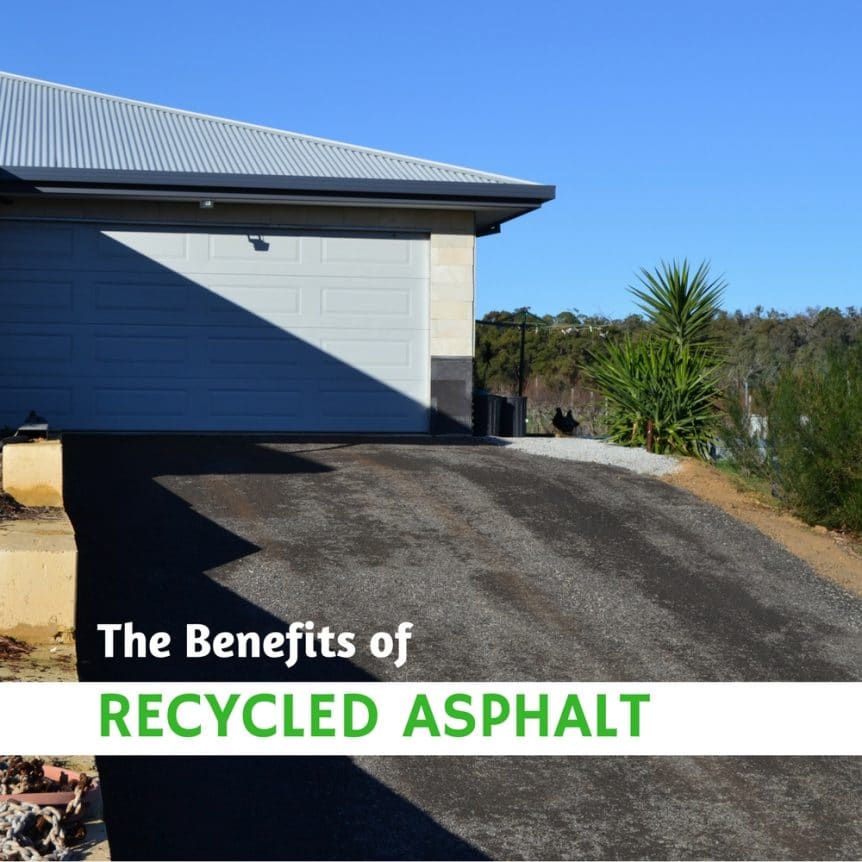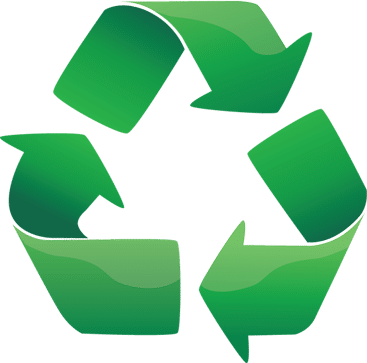The range of materials that can be recycled seems to be growing all the time, but many people still don’t realise that asphalt is one of the most commonly recycled materials in the world.
In fact, asphalt is 100% recyclable. It simply needs to be reclaimed, crushed, screened and put to use. This practice eases demand for virgin quarried aggregate and also reduces the burden on landfill.
How Is Asphalt Recycled?
Not that long ago, when an old parking lot, road, or driveway was torn up, it would simply become dead-weight in a landfill somewhere. But that’s no longer the case.
Now, instead of wasting old asphalt, asphalt recyclers collect the discarded rubble, crush it down to size, screen it, and produce a high-quality aggregate that’s ready for new use.
Some of the Ways Recycled Asphalt Can Be Used
Recycled asphalt can make the production of new hot mix asphalt more sustainable. Rather than relying on 100% new resources, companies can combine recycled asphalt with virgin materials to create hybrid asphalt that gives identical results. In fact, a briefing note provided by the Main Roads WA state that recycled asphalt makes up 10% of the hot asphalt mix that is used on Western Australian Roads.
The other group of people that can benefit from the use of Recycled Asphalt is homeowners and landscape contractors. Homeowners and landscape contractors often choose recycled asphalt for residential driveways and paths due to its low cost and easy installation. It’s also a very popular material with city councils that are laying down new bike paths or walking trails.
Recycled Asphalt can also be laid cold, which means even further cost savings.
Environmental and Economic Benefits of Recycled Asphalt
Asphalt plants are able to manufacture high-quality asphalt and related materials without needing to excavate natural materials, which nets them massive savings. Because the cost to asphalt plants is reduced, consumers like contractors and homeowners can enjoy much lower prices. But the most important benefits are environmental.
When old asphalt is reclaimed and reused, fewer raw resources are required. At the same time, landfills are freed up from the burden of non-biodegradable asphalt waste. Recycled asphalt also weighs less than its newly produced counterpart, so there is also a reduction in carbon emissions when transporting it.
Issues to consider with Recycled Asphalt
While there are no major problems with recycled asphalt, there are a couple of minor issues to bear in mind.
Less choice in colour
The aggregate material may have a different colouration to virgin asphalt. This does not affect functionality – it actually creates a unique and one-of-a-kind look – but if you want the traditional deep black colour, consider virgin asphalt.
Red asphalt is also a really popular choice in Western Australia, however, stocks are not as plentiful as the black asphalt.
Variance in Quality
There can be more variance in quality when it comes to recycled asphalt. This fluctuation could obviously be problematic, but it can be easily avoided by carefully researching companies before deciding who to buy from.
Look for an asphalt recycling facility that is well established, experienced, and has a reputation for being reliable. They should be known for delivering a consistently high product and they should usually be locally-owned.
Asphalt Recyclers Australia provides recycled asphalt for bulk delivery to homeowners, contractors, government authorities, property developers and more in the Perth and Surrounding WA Region (300 kms radius). For more information about our process, or to invest in recycled asphalt for your next project, contact us today.


